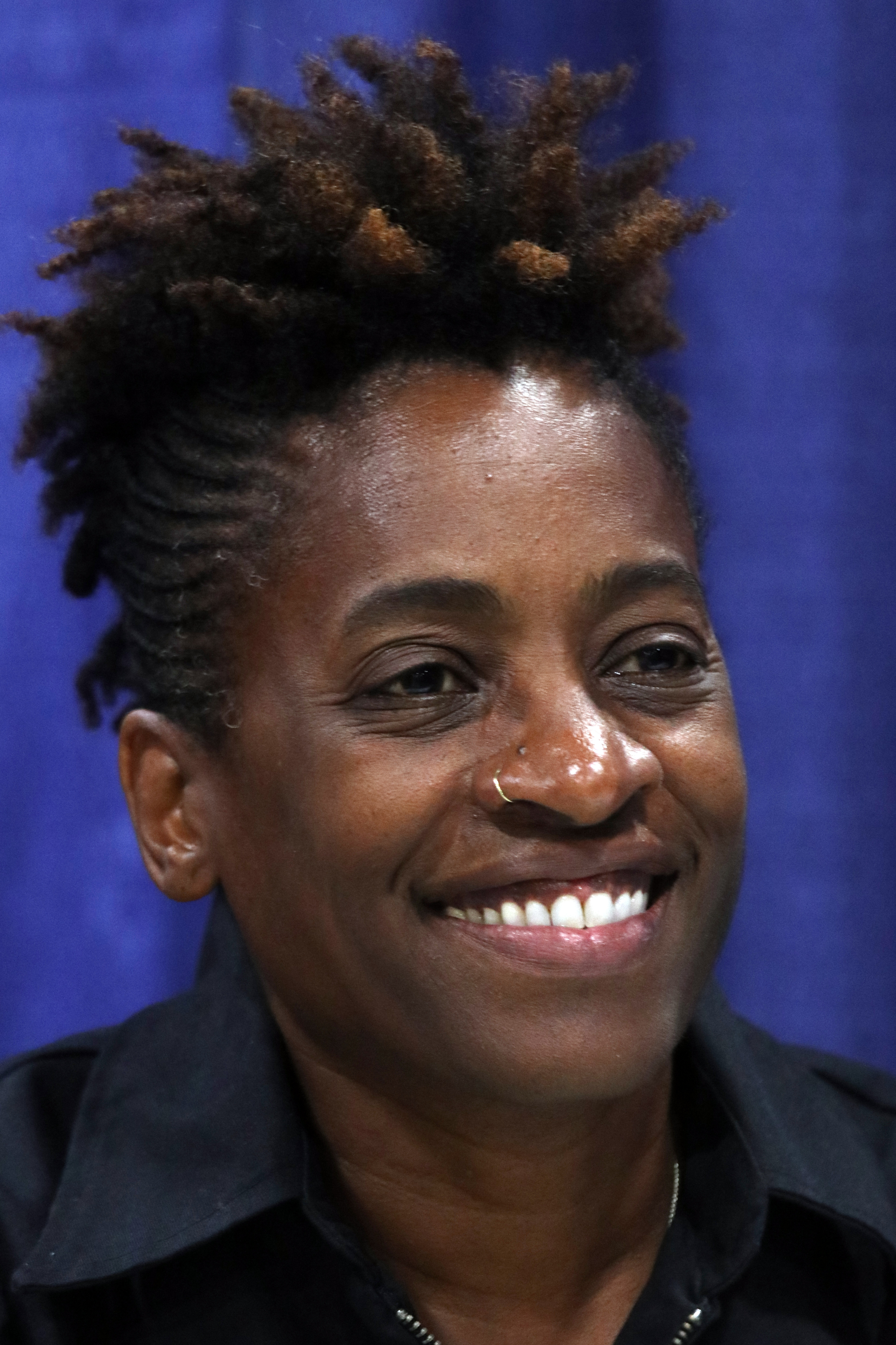“I believe in one day and someday and this perfect moment called.”
Quelle: Brown Girl Dreaming
Jacqueline Amanda Woodson ist eine amerikanische Schriftstellerin. Ihr Roman Miracle’s Boys gewann im Jahr 2001 den Coretta Scott King Award. Mehrere ihrer Werke, wie zum Beispiel Brown Girl Dreaming, After Tupac & D Foster, Feathers und Show Way wurden mit dem US-amerikanischen Literaturpreis Newbery Honor ausgezeichnet. Für ihr Lebenswerk als Kinderbuchautorin gewann Woodson im Jahr 2005 außerdem den Margaret A. Edwards Award. Im Jahr 2014 war sie für den alle zwei Jahre vergebenen internationalen Hans-Christian-Andersen-Preis nominiert und laut dem International Board on Books for Young People eine der sechs Kandidaten der Shortlist; im Jahr 2020 wurde sie mit dem Preis ausgezeichnet. 2018 erhielt sie den Astrid-Lindgren-Gedächtnis-Preis, den mit rund 520.000 Euro höchstdotierten Kinderbuchpreis der Welt.
Für ihr Buch Brown Girl Dreaming erhielt Woodson 2014 den National Book Award in der Kategorie „Jugendliteratur“.
Wikipedia

“I believe in one day and someday and this perfect moment called.”
Quelle: Brown Girl Dreaming
“When there are many worlds
you can choose the one
you walk into each day.”
Quelle: Brown Girl Dreaming
“Even the silence
has a story to tell you.
Just listen. Listen.”
Quelle: Brown Girl Dreaming
“But on paper, things can live forever.
On paper, a butterfly
never dies.”
Quelle: Brown Girl Dreaming
“Sometimes… you have to try to forget people you love just so you can keep living.”
Quelle: Between Madison and Palmetto
“You're a part of me… You're in my heart. Forever and always, all right?
—D”
Quelle: After Tupac and D Foster
Quelle: Maizon at Blue Hill
On writing in an industry that typically prefers White writers in “ Jacqueline Woodson: 'I don't want anyone to feel invisible'” https://www.theguardian.com/books/2014/nov/25/jacqueline-woodson-national-book-awards-invisible in The Guardian (2014 Nov 25)
On how she processed literature differently at an early age in “Jacqueline Woodson On Growing Up, Coming Out And Saying Hi To Strangers” https://www.npr.org/2016/10/14/497953254/jacqueline-woodson-on-growing-up-coming-out-and-saying-hi-to-strangers in NPR (2016 Oct 14)
was an all-black community. And people still lived very segregated lives, I think, because that was all they had always known. And there was still this kind of danger to integrating. So people kind of stayed in the places - the safe places that they had always known.
On still experiencing the aftereffects of segregation in “Jacqueline Woodson On Growing Up, Coming Out And Saying Hi To Strangers” https://www.npr.org/2016/10/14/497953254/jacqueline-woodson-on-growing-up-coming-out-and-saying-hi-to-strangers in NPR (2016 Oct 14)